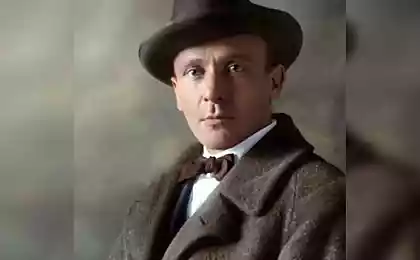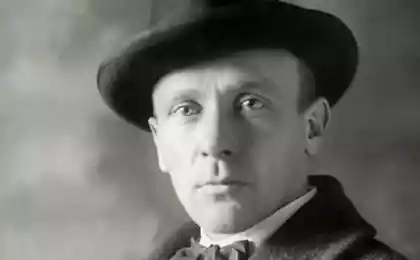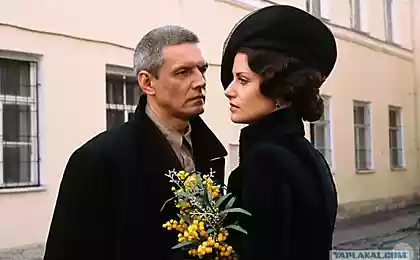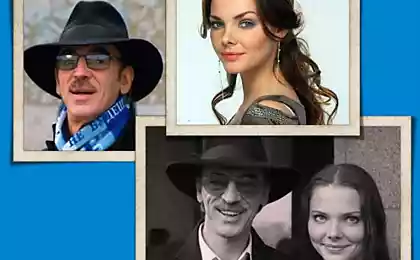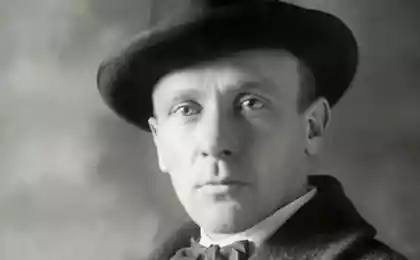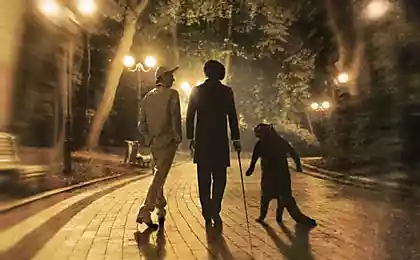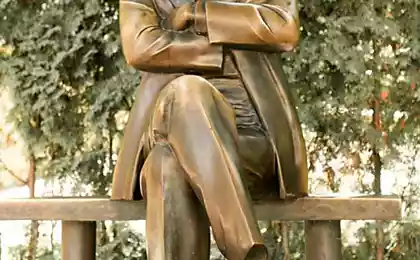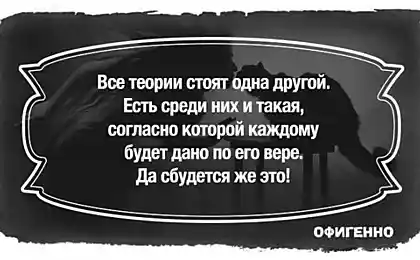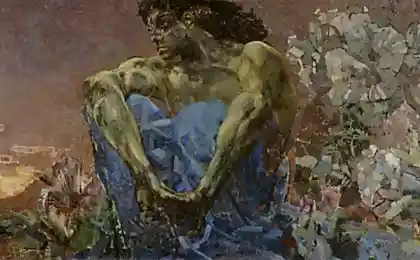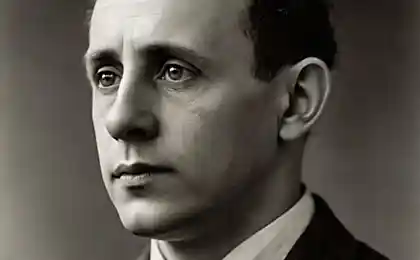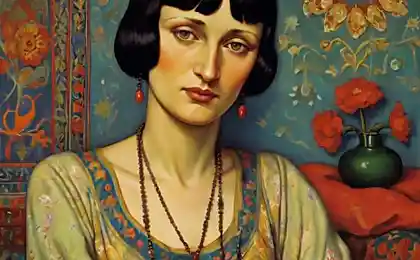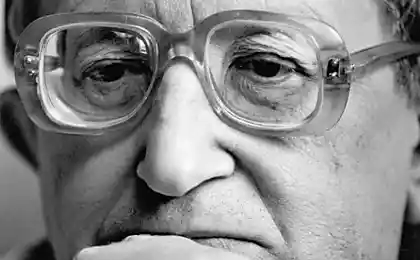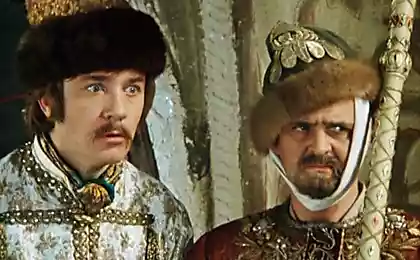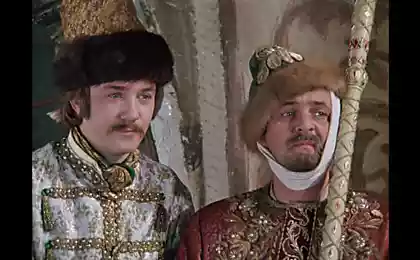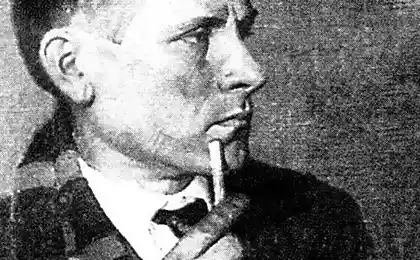1136
7 fascinating facts from the life of Mikhail Bulgakov and his best quotes
Bulgakov was not only a terrific writer who gave the world the "Heart of a Dog," "Master and Margarita", "Ivan" and other works, but also a remarkable aforistom.Sayt decided to recall the interesting facts about the life and work of Mikhail Bulgakov, as well as provide a list of his most famous quotes.
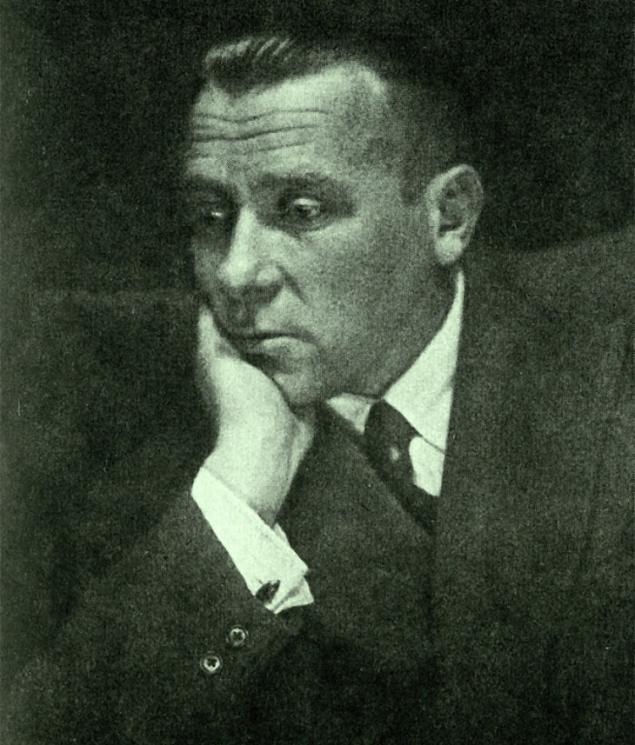
1. On the sale of the soul h3> It is known that Bulgakov often went to the Great to listen to "Faust." This opera has always raised his spirits. He especially was close image of Faust. But one day, Bulgakov returned from a grim theater in a state of severe depression. This was due to a work over which the writer has recently started work - play "Batum". Agreed to write a play about Stalin Bulgakov found himself in the image of Faust, sold his soul to the devil.
2. Missing character h3> In 1937, the anniversary of the death of Pushkin, several authors have presented a play devoted to the poet. Among them was the play by Mikhail Bulgakov "Alexander Pushkin", which is different from the works of other authors, the absence of a single character. Bulgakov believed that the appearance of the actor on stage is vulgar and tasteless. The missing character himself was Alexander.
3. Treasure Mikhail Bulgakov h3> As you know, in the novel "The White Guard" Bulgakov quite accurately described the house in which he lived in Kiev. And the owners of the house in one piece describing the writer's very hard to dislike, as it has brought direct damage to the structure. The fact that the hosts broke the walls, trying to find the treasure, described in the novel, and, of course, they found nothing.
4. History Voland h3> Woland Bulgakov got its name from Goethe's Mephistopheles. In the poem "Faust" it sounds just once, when the evil spirit Mephistopheles asks parted and let him pass, "Noble Voland is coming!" In the old German literature hell called another name - Faland. It occurs in "Master and Margarita", a variety show when employees can not remember the name of the magician: "... Maybe Faland?».
5. "Heart of a Dog" and the Russian Revolution h3> Traditionally, the novel "Heart of a Dog" is interpreted in only one political way: Balls - an allegory of the lumpen proletariat, unexpectedly received a set of rights and freedoms, but quickly discovered with the selfishness and the desire to kill themselves like. But there is another interpretation, as if this story was a political satire on the leadership of the state mid-1920s. In particular, that the ball-Chugunkin - a Stalin (both the "iron" the second name), prof. Transfiguration - Lenin is (are converted to), his assistant Dr. Bormental, constant conflict with ball - is Trotsky (Bronstein), Shvonder - Kamenev, assistant Zina - Zinoviev, Darya - Dzerzhinsky, and so on. D.
6. The prototype Behemoth h3> celebrities assistant Voland there was a real prototype, but in life it was not a cat and dog - black dog Bulgakov, nicknamed Hippo. This dog was very intelligent. Once, when Bulgakov and his wife celebrated the New Year, after the fight chimes his dog barked 12 times, even though it did not teach this one.
7. Ivan Vasilievich: Back to the Future h3> «Ivan» Bulgakov wrote back in 1934, but the triumphant success came to him in 1973 when to play a hand in a brilliant master of cinema Leonid Gaidai. The director kept Bulgakov line almost completely, but he still had to adapt the parts 30s to the realities of the 70's. For example, a gramophone, mentioned in the play, was changed into a tape recorder, worsted coat - on suede jacket, but in the time machine used transistors.
Notable quotes Bulgakov h2> Do and do not ask! Do nothing, and especially those who are stronger than you. Sami offer themselves will all!

1. On the sale of the soul h3> It is known that Bulgakov often went to the Great to listen to "Faust." This opera has always raised his spirits. He especially was close image of Faust. But one day, Bulgakov returned from a grim theater in a state of severe depression. This was due to a work over which the writer has recently started work - play "Batum". Agreed to write a play about Stalin Bulgakov found himself in the image of Faust, sold his soul to the devil.
2. Missing character h3> In 1937, the anniversary of the death of Pushkin, several authors have presented a play devoted to the poet. Among them was the play by Mikhail Bulgakov "Alexander Pushkin", which is different from the works of other authors, the absence of a single character. Bulgakov believed that the appearance of the actor on stage is vulgar and tasteless. The missing character himself was Alexander.
3. Treasure Mikhail Bulgakov h3> As you know, in the novel "The White Guard" Bulgakov quite accurately described the house in which he lived in Kiev. And the owners of the house in one piece describing the writer's very hard to dislike, as it has brought direct damage to the structure. The fact that the hosts broke the walls, trying to find the treasure, described in the novel, and, of course, they found nothing.
4. History Voland h3> Woland Bulgakov got its name from Goethe's Mephistopheles. In the poem "Faust" it sounds just once, when the evil spirit Mephistopheles asks parted and let him pass, "Noble Voland is coming!" In the old German literature hell called another name - Faland. It occurs in "Master and Margarita", a variety show when employees can not remember the name of the magician: "... Maybe Faland?».
The first edition contained a detailed description of the product (15 manuscript pages) will Woland when he first appears in the guise of "stranger." This description is now almost completely lost. In addition, in the early edition of Woland's name was Astaroth (one of the highest ranking demons of hell, according to the Western demonology). Later Bulgakov replaced him, apparently because the image could not be identical with Satan.
5. "Heart of a Dog" and the Russian Revolution h3> Traditionally, the novel "Heart of a Dog" is interpreted in only one political way: Balls - an allegory of the lumpen proletariat, unexpectedly received a set of rights and freedoms, but quickly discovered with the selfishness and the desire to kill themselves like. But there is another interpretation, as if this story was a political satire on the leadership of the state mid-1920s. In particular, that the ball-Chugunkin - a Stalin (both the "iron" the second name), prof. Transfiguration - Lenin is (are converted to), his assistant Dr. Bormental, constant conflict with ball - is Trotsky (Bronstein), Shvonder - Kamenev, assistant Zina - Zinoviev, Darya - Dzerzhinsky, and so on. D.
6. The prototype Behemoth h3> celebrities assistant Voland there was a real prototype, but in life it was not a cat and dog - black dog Bulgakov, nicknamed Hippo. This dog was very intelligent. Once, when Bulgakov and his wife celebrated the New Year, after the fight chimes his dog barked 12 times, even though it did not teach this one.
7. Ivan Vasilievich: Back to the Future h3> «Ivan» Bulgakov wrote back in 1934, but the triumphant success came to him in 1973 when to play a hand in a brilliant master of cinema Leonid Gaidai. The director kept Bulgakov line almost completely, but he still had to adapt the parts 30s to the realities of the 70's. For example, a gramophone, mentioned in the play, was changed into a tape recorder, worsted coat - on suede jacket, but in the time machine used transistors.
In the scene of the meeting with Ivan the Terrible Yakin mentioned the names popular in the 70s movie stars. The play is mentioned that Bunsha was the son of the prince, but the Bunsha denies this, pointing out that in fact his biological father - the driver Pantelei; in the film, this episode is omitted as obvious anachronism. At the same time, Zina in the film, like the play, complaining that she had "taken away the gloves in a cafe," though in the 70s women did not wear gloves in the summer (at least in the USSR).
By the way, the American audience the film is also a sign, but under the changed name: "Ivan Vasilievich: Back to the Future» («Ivan Vasilievich: Back to the Future» and «Ivan the Terrible: Back to the Future»).
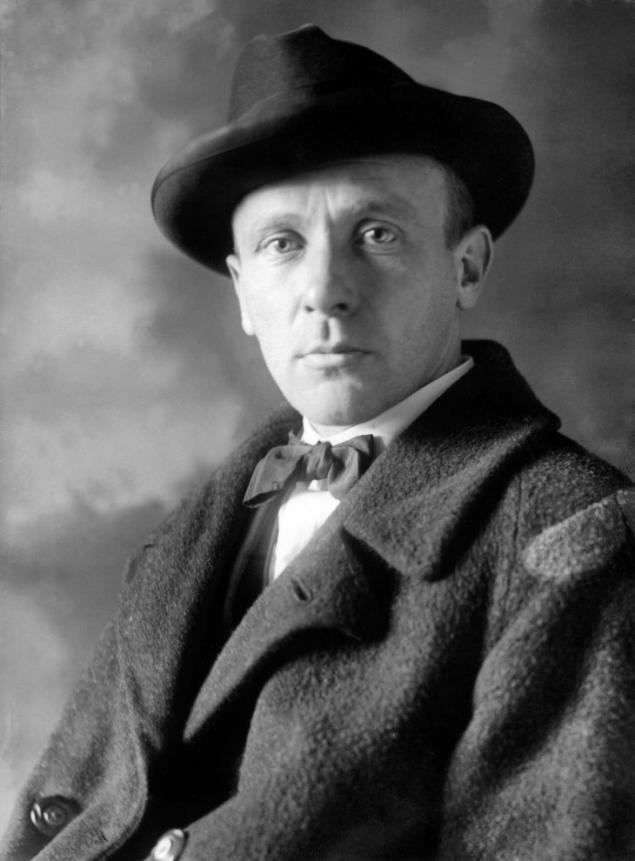
Notable quotes Bulgakov h2> Do and do not ask! Do nothing, and especially those who are stronger than you. Sami offer themselves will all!
He who loves must share the fate of someone he loves.
Happiness as health, when it is available, you do not notice it.
Evil lurks in men who avoid wine, games, society, charming women, table talk. These people are sick or gravely, or secretly hate others.
Second freshness - that is nonsense! Freshness is only one - the first, it is also the last. And if sturgeon second freshness, it means that it is rotten!
Achiever throughout the one who is in a hurry.
Only through suffering comes true ... That's right, do not worry! But knowing the truth do not pay any money or do not give rations. Sad but true.
Maybe prevent money be cute. Here, for example, no one has any money, and everything nice.
On the crime does not go never against whomever it may be directed.
Before they reach old age with clean hands.
In the world there are only two forces: Dollars and literature.
It is enough to chase a man under fire, and he turns into a wolf wise; replaced by a very weak and in really difficult cases unnecessary mind grows wise animal instinct.
Evil people do in the world, there are only people unhappy.
The writer will always be in opposition to the policy until the policy itself will be in opposition to the culture.
via www.adme.ru/tvorchestvo-pisateli/pisatel-podruzhivshijsya-s-dyavolom-684655/
15 short facts about the world that never ceases to surprise us
15 gold facts about parenting from Julia Gippenreiter

